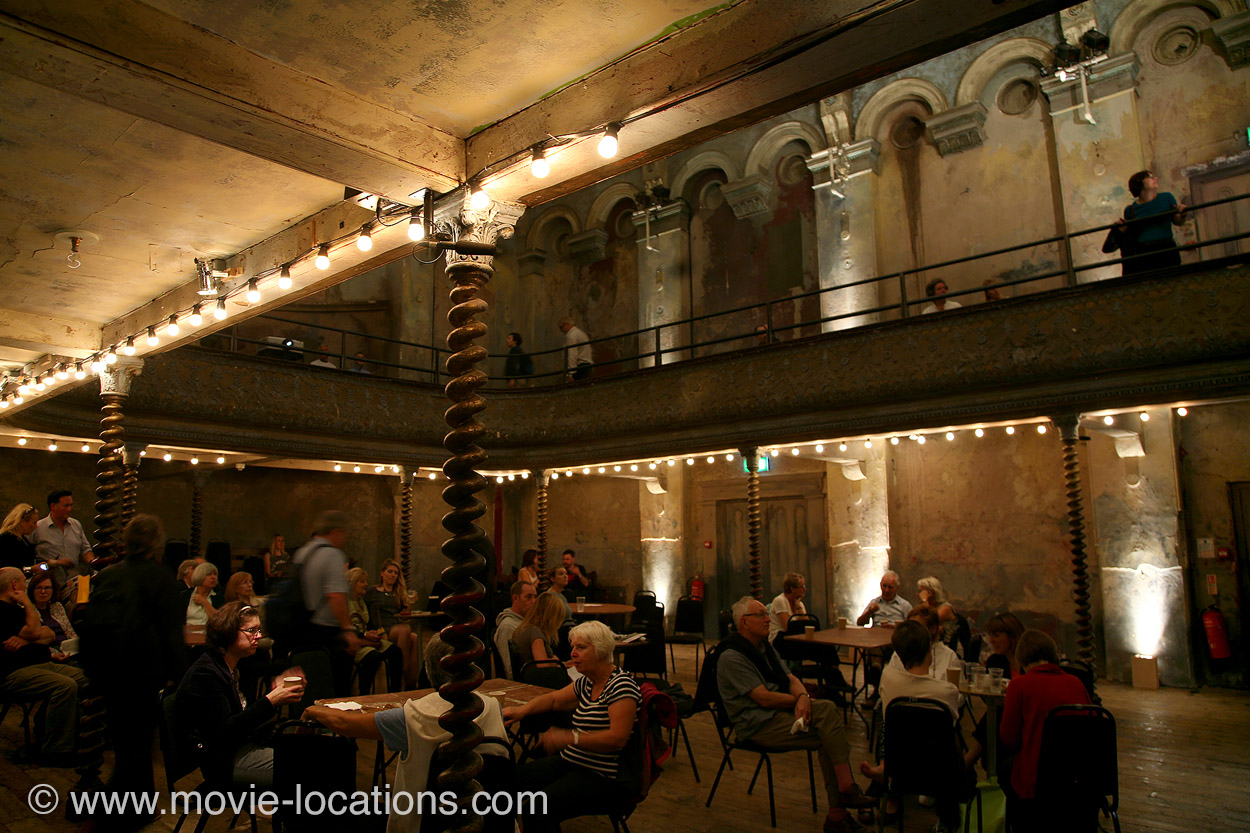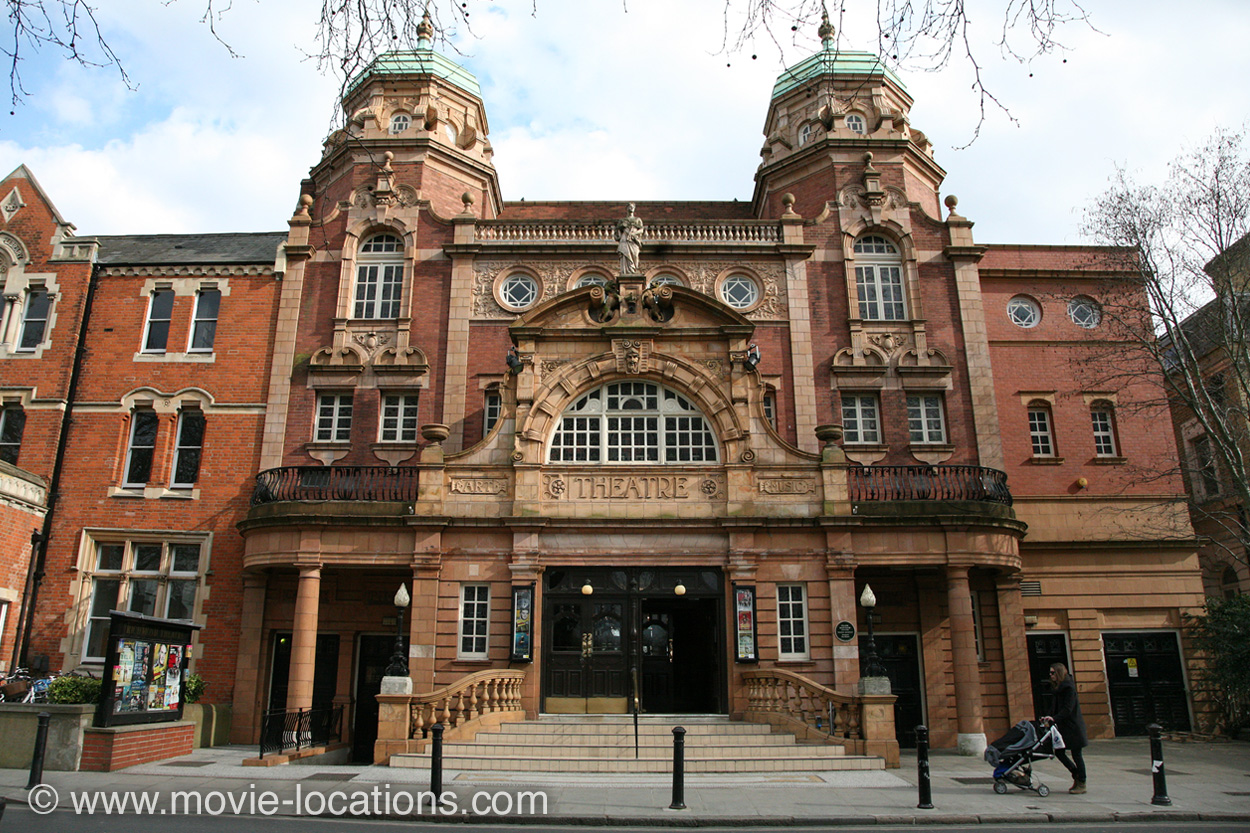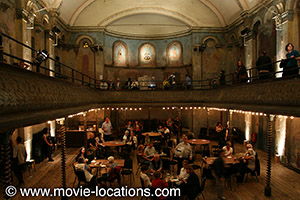The Krays | 1990


In the 1960s, the Kray twins, Ron and Reggie, ruled London’s East End. A pair of ruthless gangsters, they hobnobbed with the stars, were snapped alongside Judy Garland, photographed by Lord Snowdon and seemed above the law. They were parodied by the Monty Python team as Doug and Dinsdale Piranha ("Dinsdale blew up Luton Airport. Even the police began to sit up and take notice.")
According to taste, the Krays were working-class heroes (“they only killed their own kind, and they was nice to their Mum, Gawd bless 'em”) or psychopathic nutters who ruled through terror. Oh, and Ronnie was gay.
With material like that, the movie was only a matter of time, though 1971's Villain borrowed heavily from their story, with the twins combined into mum-obsessed Vic Dakin (Richard Burton).
Philip Ridley’s script for The Krays, arch poetics aside, depicts a very different East End from that usually seen on screen – a fiercely matriarchal society where women shoulder the burdens while overgrown boys play gangsters.
The real Blind Beggar pub, where Ronnie Kray had grown cocky enough to pop George Cornell in a pub full of witnesses, still serves up pints, though much changed and spruced up, at 337 Whitechapel Road. Cornell had referred to Ronnie as “a fat poof”. Maybe not a good way to refer to a psychotic gay gangster in public.

The Krays’ home territory was Bethnal Green, E2, where they lived at 178 Vallance Road. The area has been substantially redeveloped and the house is long vanished. For the film, a suitably unchanged terraced street was found south of the Thames in Greenwich.
32 Caradoc Street, a sidestreet off Trafalgar Road, London SE10, became the house dubbed "Fortress Vallance". The street has been used for numerous productions, including Fred Schepisi’s Plenty, with Meryl Streep. Oddly, the same house turns up as the home of Reg Kray's wife-to-be Frances in Brian Helgeland's 2015 version of the story, Legend with Tom Hardy as both twins.

The brothers move into the entertainment business, and the imposing exterior of their nightclub is Richmond Theatre, The Green, Richmond, seen in many previous films, including Evita, biopic Wilde, with Stephen Fry, as 'Ford's Theatre, Washington DC' (site of Abraham Lincoln's assassination) in both the 2000 revamp of Bedazzled and in National Treasure: Book Of Secrets. It also became the ‘Duke of York’s’ theatre, where Peter Pan premieres in Finding Neverland, with Johnny Depp, Kate Winslet and Dustin Hoffman and the 'West End' theatre in the opening scenes of Downton Abbey: The Grand Finale.

The interior, though, is Wilton’s Music Hall, 1 Grace’s Alley, Wellclose Square, off Cable Street, E1, seen in two biopics – Richard Attenborough’s Chaplin, with Robert Downey Jr, and Karel Reisz’s Isadora, with Vanessa Redgrave as the flamboyant dancer. It’s also featured in The Danish Girl, Douglas McGrath’s 2002 film of Nicholas Nickleby, Woody Allen’s Cassandra’s Dream and John Landis’s Burke And Hare.
The hall, built in 1858, was the first and one of the most successful of London’s music halls. It was taken over by scandalised Methodists in the 1880s, and run as a mission until 1956, when it became a rag warehouse. For many years it lay dilapidated, used only for film shoots, as well as music videos (Frankie Goes To Hollywood’s Relax must have had the Methodists whizzing round in their graves, though Mumford & Sons’ Little Lion Man might calm them down a little).

The pub that gets trashed by rival gang the Maltese boys is the Royal Oak, Columbia Road, Hackney, in the middle of the famous flower market. The Oak was also seen (but not by many) in David A Stewart’s Honest, as well as becoming ‘Samoan Jo’s’ in Lock, Stock and Two Smoking Barrels, and the time-warping local boozer in UK TV’s Goodnight Sweetheart.
Coincidence or homage? The Royal Oak is promoted to becoming the 'Blind Beggar' in Legend.

George Cornell (Steven Berkoff) was the rival reckless enough to refer to Ronnie as "a fat poof" . It may have been the 'fat' more than the 'poof' that stung ex-boxer Ronnie's pride. The Blind Beggar has been not only been thoroughly modernised but also stands on a busy main road. The pub used for the shooting in The Krays is 177 Hoxton Street at Bacchus Walk, in the middle of Hoxton Market. The local little boozer – at the time of filming – became high-style restaurant Bacchus, but is currently closed and being revamped again. That's Hoxton for you.
The glamorous 'West End' nightclub where the brothers are photographed with an American singer called Judy (Judy Garland was famously photographed with the Krays) was the Café de Paris, 3 Coventry Street, W1, between Piccadilly Circus and Leicester Square.
During the Blitz, when most of the West End closed down, the Café remained open on the assumption that it was bomb-proof. Tragically, this turned out not to be the case, and a direct hit killed 34 people.
Rebuilt, it continued to provide entertainment for the glitterati until it hit a slump in the Eighties, when it found fame as a movie backdrop, for Absolute Beginners, Scandal, The Krays; and the Café slummed it a little as the ‘Soho’ strip club where John Goodman relaxed in King Ralph. It bounces back as a glamorous nitespot in Lone Scherfig’s 2009 Oscar-nominated An Education and as a decadent 'Vegas' club in X-Men: First Class, and becomes the Krays' own 'Hide-A-Way' club in Legend. In 2020, following the Covid lockdown, it finally closed its doors for good. It had to be recreated in the studio for the Sixties scenes of Edgar Wright's Last Night In Soho.
Woolwich Cemetery, Kings Highway, London SE18 is the site of the funeral of Violet Kray (Billie Whitelaw), the twins’ much-loved Mum at the end of the film.
Off Kennington Road is Walcot Square, at Sullivan Road, where Reggie Kray’s violent reaction to two guys admiring his car sends his wife Frances into hysterics.
Closed and up for sale at the time of writing, The Fleece, 160 Abbey Street at Neckinger, is the pub where the pathetic Jack the Hat (Tom Bell) gets steaming drunk, before being dragged off by Ronnie’s boyfriend Steve (Gary Love), past the Marquis of Wellington, Druid Street, under the railway bridge at Gedling Place, to the party to end all parties.





